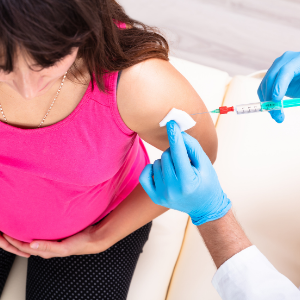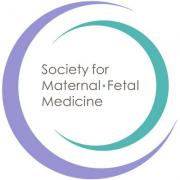
COVID Vaccines Should Not be Withheld from Pregnant Women
Women have spent decades fighting for equal rights. We have made significant strides in many arenas, enacting a variety of social, political, and economic reforms. But one notable exception is the receipt of evidence-based care during pregnancy, when women and their providers are often left in the dark about what medications and therapeutics are safe and effective. This knowledge gap, which has persisted for decades, will be on display this week as federal agencies make decisions about the use of COVID-19 vaccines.
Each year, about four million women in the United States give birth. These women are largely excluded from clinical trials during their pregnancies due to a multitude of barriers, including concerns about possible harms to both the woman and her fetus. This approach may be well-meaning, but it actually has the potential to result in significant harm. Since new treatments have not been studied in pregnant women, physicians frequently withhold effective treatments from those who may benefit most. Alternatively, pregnant women receive treatments that have not been adequately studied.
COVID-19 vaccine trials are no exception. Despite significant advocacy efforts, pregnant women have been excluded from this research to-date and, as a result, may be ineligible to receive COVID-19 vaccines when they become available.
Health care workers will be among the first in line to receive COVID-19 vaccines in the United States. In addition to affording significant individual-level protection for this high-risk population, keeping health care workers safe enables them to continue to provide medical care to those who are sick with COVID-19 or other illnesses. However, one specific subgroup of health care workers, namely those who are pregnant, may not be allowed the benefit of this same protection due to a failure to include pregnant women in vaccine trials alongside other at-risk populations. For instance, on December 3, 2020 the U.K. Joint Commission on Vaccination and Immunisation, the United Kingdom’s corollary to the United State’s Advisory Committee on Immunization Practice, recommended that pregnant women should not receive the COVID-19 vaccination due to a lack of data. Theoretical risks resulting from the original exclusion of pregnant women from participation in the vaccine trials now appear to be systematically precluding many healthcare workers from receiving the vaccine.
In the United States, 75% of healthcare workers are women and the CDC estimates that 330,000 health care workers will be pregnant or will have recently given birth when new COVID-19 vaccines become available in the U.S. Recent data have demonstrated that pregnant women are more likely to have severe COVID disease, requiring ICU admission, and dying. And yet, pregnant women who are frontline workers, who devote their lives to taking care of the sick, may not have the right to make an informed decision about their own health. Many other pregnant women are frontline service workers in extended care facilities, food services, and other essential areas, and are often from underrepresented racial groups at higher risk from COVID-19 infection. Withholding the vaccine from these workers will contribute further to personal and societal economic challenges or require these women to continue to work but to be more vulnerable to infection. Such decisions will further contribute to inequities in health outcomes.
The Society for Maternal-Fetal Medicine (SMFM) is a professional medical organization specializing in the care of high-risk pregnant women. SMFM includes leading experts in perinatal infectious disease and recommends that COVID-19 vaccination should not be withheld from those who would otherwise be prioritized, such as health care workers, because of pregnancy. In fact, birth defects have never been definitively attributed to any vaccine or inadvertent vaccination. Despite the novel platform used with COVID-19 vaccines, the theoretical fetal risks are low. Given the known risks of COVID-19 to pregnant individuals, women should be allowed to make informed decisions regarding vaccination in consultation with their health care providers.



The views and opinions expressed in this post are those of the author(s) and do not necessarily reflect those of MomsRising.org.
MomsRising.org strongly encourages our readers to post comments in response to blog posts. We value diversity of opinions and perspectives. Our goals for this space are to be educational, thought-provoking, and respectful. So we actively moderate comments and we reserve the right to edit or remove comments that undermine these goals. Thanks!